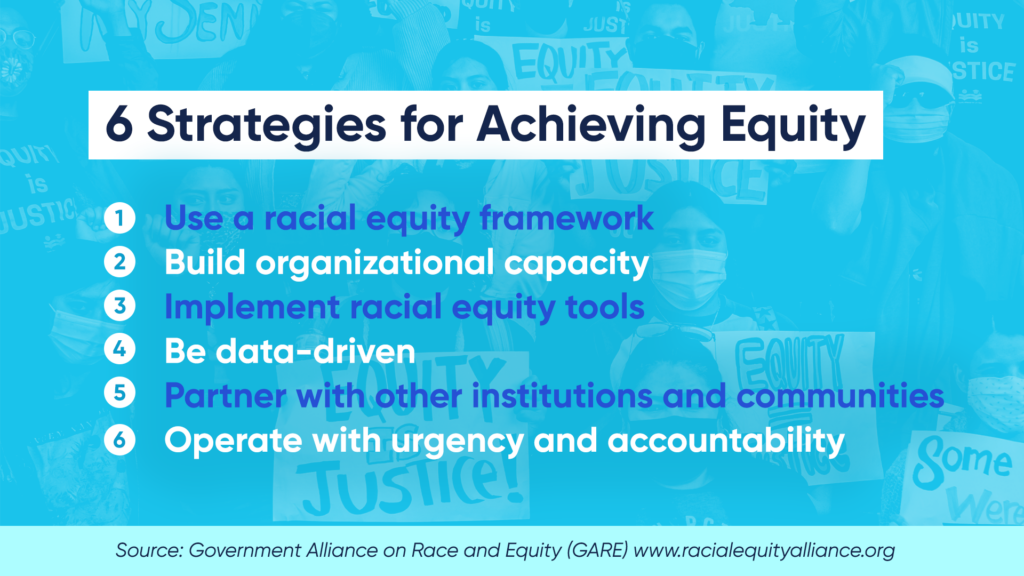Six Strategies to Achieving and Sustaining Equity
To advance equity, government must focus not only on individual diversity, equity and inclusion training but also tackle the policies and institutional legacies that perpetuate the cycle of inequitable outcomes. Equity strategists agree the following six strategies are critical to achieving and sustaining equity.*

1. Use a racial equity framework
Creating a racial equity framework sets the foundation to clearly articulate racial equity, implicit and explicit bias, and individual, institutional, and structural racism.
2. Build organizational capacity
Equity benchmarks are constantly changing given the conditions of the environment. Stakeholders must commit to adapting and creating infrastructure to ensure equity work does not fall by the wayside. Resources like funding, staffing, leadership, and collaboration are essential to addressing systemic inequities.
3. Implement racial equity tools
Deliberate policy and programmatic decisions created the racial inequities we see today. And these systems will continue if not meaningfully addressed. Specific tools must be used to change the policies, programs, and practices that are exacerbating these systemic inequities.
4. Be data-driven
Data is the key to accountability and measuring progress. Comprehensive data that is reflective of the population, region, social and economic landscape, and other factors that contribute to structural inequities. With accurate data, stakeholders can assess the current lay of the land, set goals for measurable outcomes, and ensure accountability.
5. Partner with other institutions and communities
Those who are the most negatively impacted know the solutions that are best for them to remove systemic barriers. To achieve racial equity, local and regional governments must work in partnership with communities and other institutions to achieve meaningful results.
6. Operate with accountability
Building in institutional accountability via a clear plan of action will maximize progress. Everyone may have the best intentions to achieve equity but without community input and accountability, the forces of systemic racism will continue to thwart efforts to make progress.
*Source: Government Alliance on Race and Equity (GARE)
